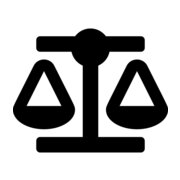Best General Litigation Lawyers in Fribourg
Share your needs with us, get contacted by law firms.
Free. Takes 2 min.
List of the best lawyers in Fribourg, Switzerland
About Litigation Law in Fribourg, Switzerland
Litigation in Fribourg, Switzerland refers to the process of resolving legal disputes through the courts and judicial system within the Canton of Fribourg. The local justice system applies both Swiss federal law and specific cantonal regulations that govern civil, commercial, and administrative disputes. Litigation can involve private individuals, companies, or even public authorities seeking to assert their rights or defend their interests in various matters such as contracts, property, employment, and more. The process is governed by the Swiss Code of Civil Procedure, which aims to ensure fair and efficient proceedings.
Why You May Need a Lawyer
There are many situations where seeking legal help in litigation becomes essential. Common scenarios in Fribourg include contract disputes, disagreements over inheritance, employment conflicts, landlord-tenant issues, breaches of commercial agreements, divorce or custody battles, and claims for damages or compensation. Legal counsel is particularly valuable for interpreting complex local laws, assessing case strengths and weaknesses, gathering evidence, drafting legal documents, negotiating settlements, and representing individuals or businesses in court hearings. Having a lawyer can increase the chances of a favorable outcome and help avoid procedural mistakes that could jeopardize your case.
Local Laws Overview
Litigation in Fribourg is primarily governed by the Swiss Code of Civil Procedure, along with special federal statutes and cantonal rules. Civil courts in Fribourg handle matters like contract and property disputes, while administrative cases may be dealt with by specific tribunals. The courts often encourage conciliation or mediation before a case proceeds to a full trial. Key aspects to note include strict deadlines for filing claims, requirements to attempt pre-trial negotiation in certain cases, language of the proceedings (predominantly French in Fribourg), and the roles of parties and their legal representatives during hearings. Legal costs, such as court fees and lawyer fees, are generally borne by the losing party, although exceptions and partial reimbursements may apply depending on specific circumstances.
Frequently Asked Questions
What kinds of cases are commonly litigated in Fribourg?
Typical cases include disputes over contracts, employment relationships, rental agreements, inheritance matters, family law issues, and business conflicts.
Do I need to try mediation or conciliation before going to court?
In many types of cases, especially civil disputes, parties are required to attempt conciliation or mediation before the court will formally begin litigation proceedings.
What language are court proceedings held in?
Court proceedings in Fribourg are generally conducted in French, as it is the official language of the canton.
How long does it usually take for a case to be resolved?
The duration varies depending on the complexity of the case, but straightforward cases can take a few months, while more complex litigation may last several years.
What are the main stages of a litigation case in Fribourg?
Key stages include filing the initial claim, exchanging written submissions, preliminary hearings, possible conciliation attempts, the main trial hearing, and the judgment. Appeals may follow if necessary.
Can I represent myself, or do I need a lawyer?
While self-representation is allowed, having a lawyer is highly recommended due to the intricacies of legal procedures and the potential consequences of procedural errors.
Who pays for the legal costs in litigation?
Generally, the losing party is ordered to pay the court fees and a portion of the winning party's legal expenses. However, exceptions or sharing of costs are possible, depending on the circumstances.
How can I find a qualified litigation lawyer in Fribourg?
You can consult the Fribourg Bar Association or ask for referrals from trusted sources. It is important to choose a lawyer with experience in the relevant field of law.
What should I bring to my first meeting with a litigation lawyer?
Gather all relevant documents, such as contracts, correspondence, evidence, identification, and a clear timeline of events related to your case.
Is it possible to settle a dispute before reaching trial?
Yes, most disputes are settled through negotiation or mediation before reaching a full court trial, saving time and costs for both parties.
Additional Resources
Individuals seeking legal advice or assistance with litigation in Fribourg can benefit from several resources:
- Fribourg Judicial Authorities - For information on court locations and procedures
- Fribourg Bar Association (Ordre des Avocats du Canton de Fribourg) - To find accredited lawyers
- Legal Aid Services (Aide juridique) - For those with limited financial resources
- Justice of the Peace Offices (Justice de Paix) - For initial conciliation and mediation in civil matters
- Swiss Federal Supreme Court - For information on appeals and federal jurisprudence
- Consumer protection and tenants' associations for support in specific dispute areas
Next Steps
If you need legal assistance with a litigation matter in Fribourg, begin by identifying the type of dispute you face and gathering all pertinent information and documents. Contact the Fribourg Bar Association to find qualified legal professionals who specialize in your area of need. Schedule a consultation to discuss your options, potential costs, and strategies. If you are eligible for legal aid, inquire with the local legal aid services. Stay proactive throughout the process by keeping track of deadlines and maintaining open communication with your lawyer. If negotiation or mediation is feasible, consider these avenues to resolve your dispute efficiently. For complex or high-stakes matters, professional legal representation is strongly advised to ensure your rights are fully protected under local laws.
Lawzana helps you find the best lawyers and law firms in Fribourg through a curated and pre-screened list of qualified legal professionals. Our platform offers rankings and detailed profiles of attorneys and law firms, allowing you to compare based on practice areas, including General Litigation, experience, and client feedback.
Each profile includes a description of the firm's areas of practice, client reviews, team members and partners, year of establishment, spoken languages, office locations, contact information, social media presence, and any published articles or resources. Most firms on our platform speak English and are experienced in both local and international legal matters.
Get a quote from top-rated law firms in Fribourg, Switzerland — quickly, securely, and without unnecessary hassle.
Disclaimer:
The information provided on this page is for general informational purposes only and does not constitute legal advice. While we strive to ensure the accuracy and relevance of the content, legal information may change over time, and interpretations of the law can vary. You should always consult with a qualified legal professional for advice specific to your situation.
We disclaim all liability for actions taken or not taken based on the content of this page. If you believe any information is incorrect or outdated, please contact us, and we will review and update it where appropriate.











